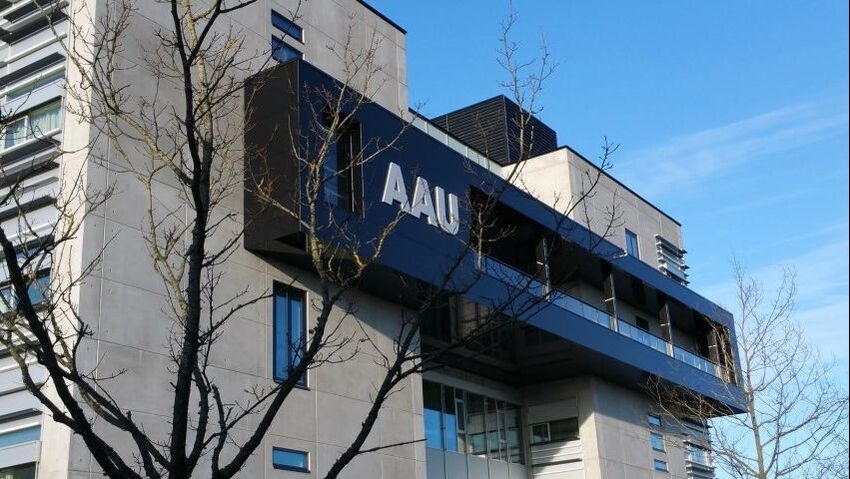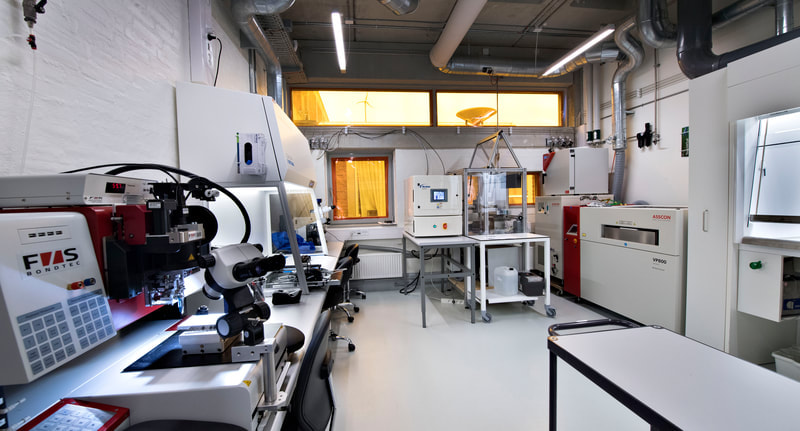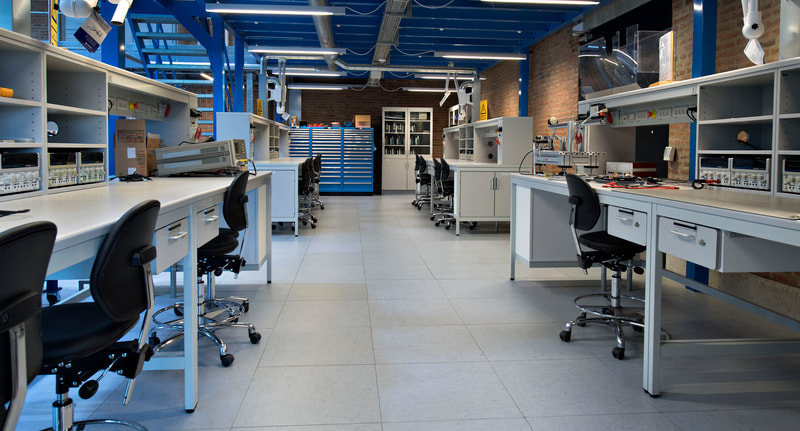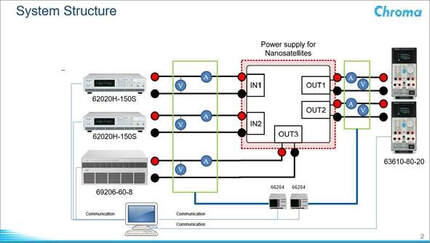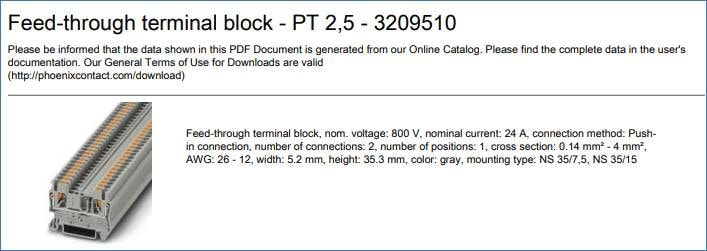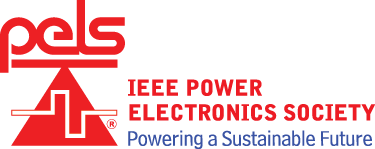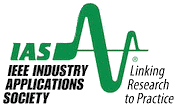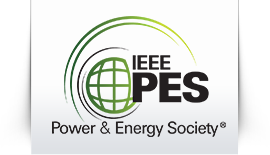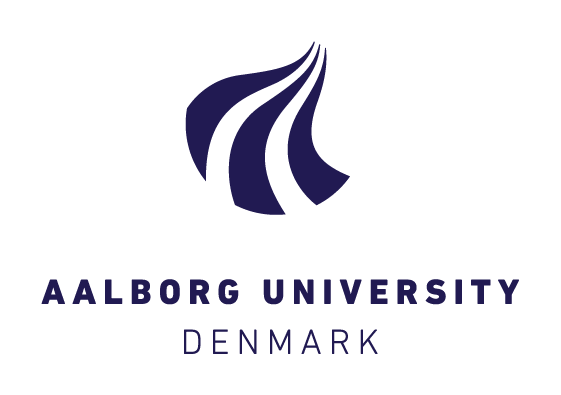Congratulations to the Winners of IFEC 2020
|
The Grand Prize ($10k)
Zhejiang University |
The Outstanding Performance Award ($5k each)
University of Belgrade, National Ilan University |
The Ingenuity Award ($1k)
India Institute of Technology Kanpur |
The following teams receive the Certificate of Excellence
Leibniz University Hannover
Technische Hochschule Köln
University of Alberta
Virginia Polytechnic Institute and State University
Leibniz University Hannover
Technische Hochschule Köln
University of Alberta
Virginia Polytechnic Institute and State University
2020 International Future Energy Challenge
College Student Competition
Final Demo Event: 09-12 November, 2020, Aalborg University, Denmark
Online Workshop 2: 31 August, 2020, 15:00-18:00 (Central European Summer Time, UTC+2)
Final Demo Event: 09-12 November, 2020, Aalborg University, Denmark
Online Workshop 2: 31 August, 2020, 15:00-18:00 (Central European Summer Time, UTC+2)
Call for Proposals
Detailed Request for Proposals (RFP) (15 Jul. 2020)
IFEC 2020: Q&A
IFEC 2020 Testing Procedure (Final competition)
For any question and suggestion, please contact by email: [email protected]
Detailed Request for Proposals (RFP) (15 Jul. 2020)
IFEC 2020: Q&A
IFEC 2020 Testing Procedure (Final competition)
For any question and suggestion, please contact by email: [email protected]
Congratulations! The four teams below have been selected for the final round of IFEC 2020
(alphabetical order)
India Institute of Technology Kanpur
National Ilan University
University of Belgrade
Zhejiang University
India Institute of Technology Kanpur
National Ilan University
University of Belgrade
Zhejiang University
Congratulations! 10 teams from the universities below are selected for the next round of student project competition (2nd online workshop )
|
Hohai University
India Institute of Technology Kanpur Leibniz University Hannover National Ilan University Technische Hochschule Köln |
University of Alberta
University of Belgrade University of Colorado Boulder Virginia Tech Zhejiang University |
17 teams from the universities below are selected for presenting at IFEC 2020 online workshop 1
|
DHBW Stuttgart Campus Horb
University of Belgrade Hohai University Huazhong University of Science and Technology India Institute of Technology Kanpur National Ilan University Drexel University University of Manitoba University of São Paulo |
University of Innsbruck
Leibniz University Hannover Technische Hochschule Köln -University of Applied Sciences University of Alberta University of Colorado Boulder Utah State University Virginia Polytechnic Institute and State University Zhejiang University |
|
General Chair
Huai Wang, Aalborg University General Co-chair Yongheng Yang, Aalborg University |
Publicity Chair
Ariya Sangwongwanich, Aalborg University Mads Graungaard Taul, Aalborg University Finance Chair Ching-Jan Chen, National Taiwan University |
IFEC2020-Power Supply for Nano Satellites
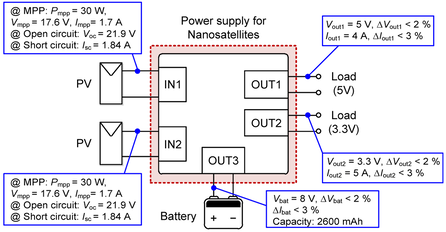
IFEC Introduction
IFEC is an international student competition for innovation, conservation, and effective use of electrical energy, which is open to college and university student teams from recognized undergraduate engineering programs in any location.
The competition is sponsored by the Institute of Electrical and Electronics Engineers (IEEE) Power Electronics Society (PELS), Power & Energy Society (PES), Industry Application Society (IAS) and Power Sources Manufacturers Association (PSMA).
Background of IFEC 2020 Topic
Nanosatellites are one of the fast-growing satellite industry segments in recent years. According to Nanosats.eu, more than 1000 small- and nanosatellites have been launched as of the January of 2019 with an estimated market value over US$7 billion. As the costs are going further down and the production period is continuously shortening, the market of nanosatellites is still growing at a fast pace. The applications of nanosatellites are also very broad, covering global tracking, internet of things, remote sensing, defense and security, electronic equipment testing, etc.
Typically, nanosatellites have a wet mass between 1-10 kg (i.e., 2.2 – 22.0 lb). In this case, the design of nanosatellites requires much more dedications, especially the electronics, which is the core of the nanosatellites power systems. In general, the power electronics systems have to withstand the harsh operating environment, where the temperature is low and the equipment is exposed strong radiations. Additionally, the power conversions should be highly efficient and highly reliable to condition the power from solar photovoltaic (PV) panels, in which the power management is essential. The voltage levels at the PV should be regulated to be compatible with the load demands, e.g., battery storage systems and on-board loads. Those involve extensive direct current (DC) to DC power conversions, unidirectional and bidirectional. Notably, the space (volume and weight) is also a limiting factor when designing the power systems.
With the above considerations and background, IFEC 2020 is calling for proposals to design power supplies for nanosatellites applications. The power supplies include power sources from multiple solar PV panels (two) mounted on the surfaces of the nanosatellites. Batteries are used as the energy storage system, which are charged through the solar PV panels and discharged to supply loads when necessary. Different types of loads are considered. Thus, the power converters include unidirectional DC-DC converters and a bidirectional DC-DC converter for the batteries. The designed power supplies should perform the basic functions – extract the maximum power from solar PV modules; charge and discharge the batteries.
Topic: Power Supply for Nano Satellites
Preliminary Specifications:
Participation
Participation is on a proposal basis. Those schools that are interested must submit a proposal to the topic chair before the proposal deadline. Each Proposal will be judged by a distinguished panel of volunteer experts from the IEEE and from industry. Schools with successful proposals will be notified and qualified for the rest of the competition. Deadline for each period will be posted on the IFEC website. The finalist teams will be invited to a competition event in summer of 2020.
There will be a Grand Prize of $10,000 and three additional awards granted at $5,000, $3,000 and $1,000 each.
Important Notice
Schedule
Workshop at ECCE 2019 September 29, 2019
Letter of Intent Deadline November 11, 2019
Proposal Deadline November 25, 2019
Notification of Acceptance December 21, 2019
Online Workshop 1 April 23-24, 2020
Online Workshop 2 September 03, 2020
Final Demo Event November 9-12, 2020
Final Competition Location
Department of Energy Technology, Aalborg University, Aalborg, Denmark
IFEC is an international student competition for innovation, conservation, and effective use of electrical energy, which is open to college and university student teams from recognized undergraduate engineering programs in any location.
The competition is sponsored by the Institute of Electrical and Electronics Engineers (IEEE) Power Electronics Society (PELS), Power & Energy Society (PES), Industry Application Society (IAS) and Power Sources Manufacturers Association (PSMA).
Background of IFEC 2020 Topic
Nanosatellites are one of the fast-growing satellite industry segments in recent years. According to Nanosats.eu, more than 1000 small- and nanosatellites have been launched as of the January of 2019 with an estimated market value over US$7 billion. As the costs are going further down and the production period is continuously shortening, the market of nanosatellites is still growing at a fast pace. The applications of nanosatellites are also very broad, covering global tracking, internet of things, remote sensing, defense and security, electronic equipment testing, etc.
Typically, nanosatellites have a wet mass between 1-10 kg (i.e., 2.2 – 22.0 lb). In this case, the design of nanosatellites requires much more dedications, especially the electronics, which is the core of the nanosatellites power systems. In general, the power electronics systems have to withstand the harsh operating environment, where the temperature is low and the equipment is exposed strong radiations. Additionally, the power conversions should be highly efficient and highly reliable to condition the power from solar photovoltaic (PV) panels, in which the power management is essential. The voltage levels at the PV should be regulated to be compatible with the load demands, e.g., battery storage systems and on-board loads. Those involve extensive direct current (DC) to DC power conversions, unidirectional and bidirectional. Notably, the space (volume and weight) is also a limiting factor when designing the power systems.
With the above considerations and background, IFEC 2020 is calling for proposals to design power supplies for nanosatellites applications. The power supplies include power sources from multiple solar PV panels (two) mounted on the surfaces of the nanosatellites. Batteries are used as the energy storage system, which are charged through the solar PV panels and discharged to supply loads when necessary. Different types of loads are considered. Thus, the power converters include unidirectional DC-DC converters and a bidirectional DC-DC converter for the batteries. The designed power supplies should perform the basic functions – extract the maximum power from solar PV modules; charge and discharge the batteries.
Topic: Power Supply for Nano Satellites
Preliminary Specifications:
- 2x DC inputs: Max power < 60 W, Max current < 3 A, voltage 20 V
- 3x DC outputs: 3.3 V @ 5 A, 5 V @ 4 A, and 8 V @ 2600 mAh
- Functionalities: MPPT control (uniform and non-uniform solar irradiance)
- Functionalities: Battery charging and discharging
- Judgment criteria: Functionality, efficiency, power density, and cost.
Participation
Participation is on a proposal basis. Those schools that are interested must submit a proposal to the topic chair before the proposal deadline. Each Proposal will be judged by a distinguished panel of volunteer experts from the IEEE and from industry. Schools with successful proposals will be notified and qualified for the rest of the competition. Deadline for each period will be posted on the IFEC website. The finalist teams will be invited to a competition event in summer of 2020.
There will be a Grand Prize of $10,000 and three additional awards granted at $5,000, $3,000 and $1,000 each.
Important Notice
- Each university can support only one team.
- Each team should have at least 4 members.
- Interdisciplinary teams are encouraged.
- Teams should be composed of primarily undergraduate students.
- Graduate students can participate in team to provide high-level support.
Schedule
Workshop at ECCE 2019 September 29, 2019
Letter of Intent Deadline November 11, 2019
Proposal Deadline November 25, 2019
Notification of Acceptance December 21, 2019
Online Workshop 1 April 23-24, 2020
Online Workshop 2 September 03, 2020
Final Demo Event November 9-12, 2020
Final Competition Location
Department of Energy Technology, Aalborg University, Aalborg, Denmark
IFEC 2020 Q&A
Document
Preliminary Testing Platform for IFEC 2020
Below is a figure of the expected testing platform to be used during IFEC 2020 at Aalborg University. Information on interfaces and connections to and from the equipment can be found in the datasheet of each product available on Chroma’s website.
The Chroma testing system include:
Testing information for final round
Document
Preliminary Testing Platform for IFEC 2020
Below is a figure of the expected testing platform to be used during IFEC 2020 at Aalborg University. Information on interfaces and connections to and from the equipment can be found in the datasheet of each product available on Chroma’s website.
The Chroma testing system include:
- 62020H-150S : Solar Array Simulator
- 17020(69206-60-8): Battery emulator
- 63610-80-20 : Load emulator (in the current mode setting at 4A and 5A, respectively)
- 66204: Measurement of voltage, current, and power
Testing information for final round
- Manuals of testing equipment: solar array simulation (62000H Series), programmable DC electronic load (63600 Series), regenerative charge/discharge tester (69225/69212 Series);
- Testing procedure (Document);
- Testing profile (Document).
Below is the information about the connector to be used for the test equipment during IFEC 2020.
Phoenix contact terminal block PT2.5.
Phoenix contact terminal block PT2.5.


